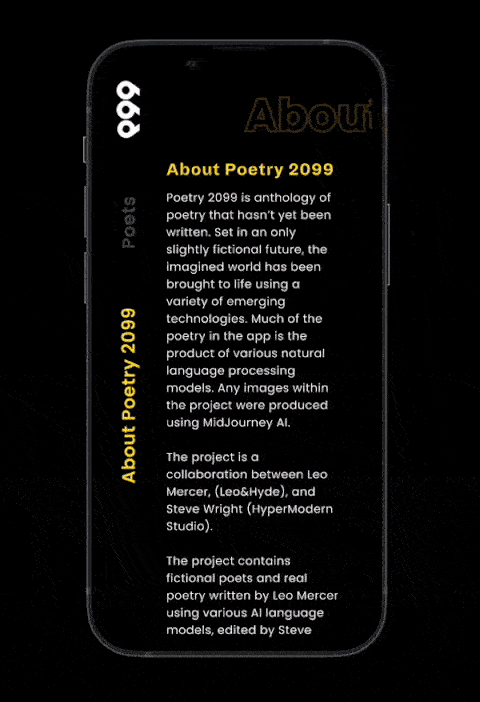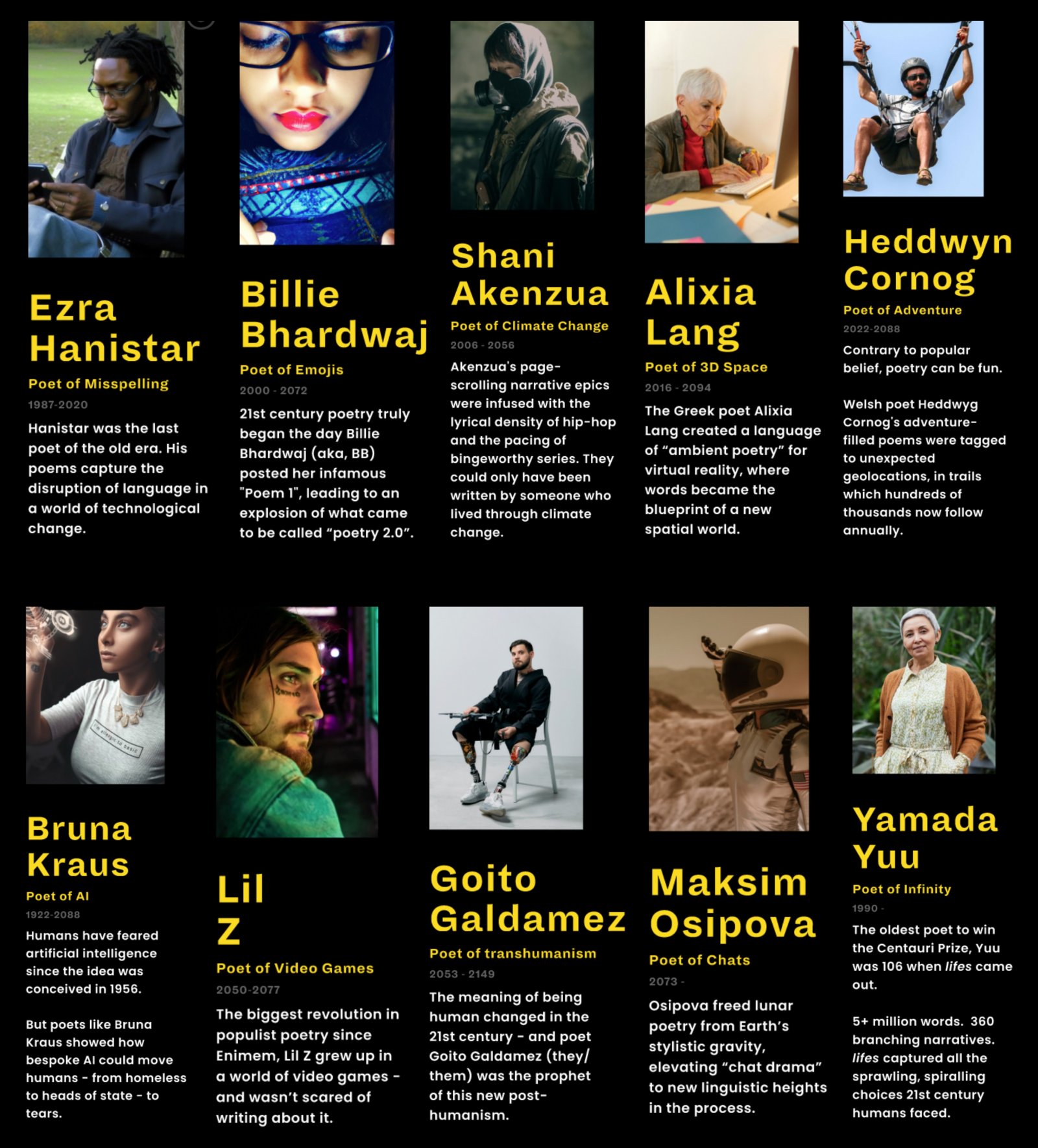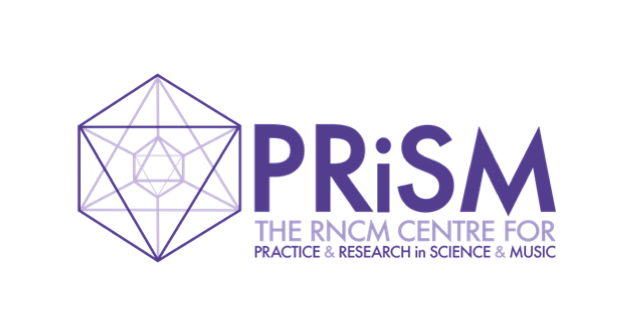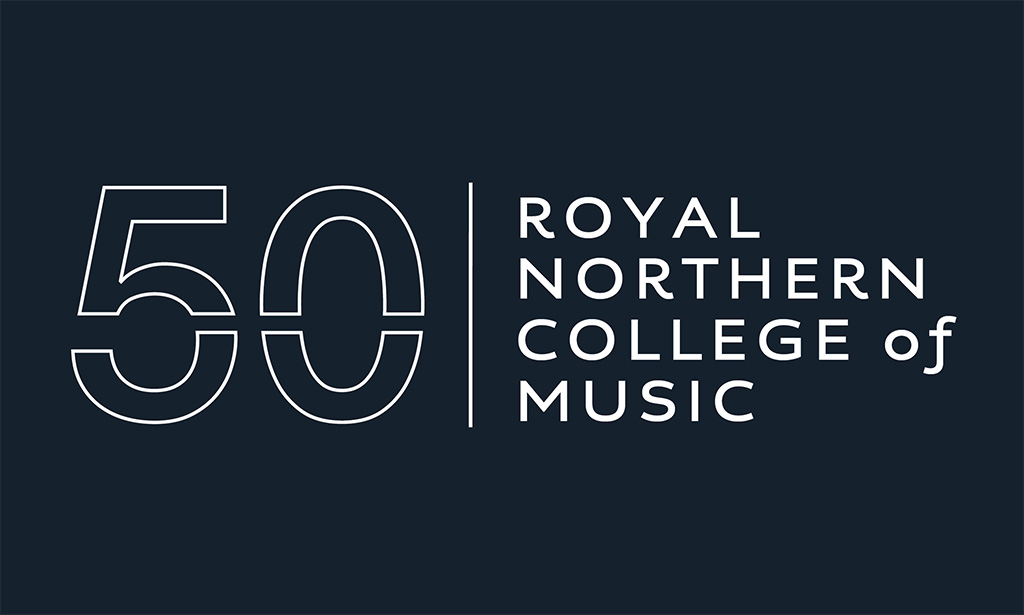In Praise of Good Collaborators (or, Writing Poetry with AI)
2 June 2023
PRiSM Writer in Residence Series: Leo Mercer

In March 2021 we welcomed 2 PRiSM Writers in Residence Abi Bliss and Leo Mercer. We introduced them and their projects here 2021 PRiSM Writers and Scientists in Residence.
During the past two years, we have worked closely with each one of them, resulting in two series of creative and critical outputs exploring the collaborative relationships between humans and technology.
Following on from his intermediate PRiSM Blog The Written Word in a Spatial Medium (August 2021), Leo’s PRiSM residency led him to create a mock-up mobile app that showcases the work of ten AI poets, each with a unique voice that pre-empt the poetry of the future.
This PRiSM Blog is therefore a reflective commentary from Leo, and his answer to the question “What does AI mean for the written word?” – through the lens of poetry and collaboration.
In Praise of Good Collaborators
(or, writing Poetry with AI)
By Leo Mercer
I kicked off my PRiSM residency with a slightly obscure question: what will happen to the written word in a world of VR? As I dove deeper into the PRiSM team’s conversations, they introduced me to the world of AI-generated creativity. My question quickly shifted to the following:
What does AI mean for the written word?
That’s when I cooked up a concept: a 22nd century pamphlet published, with the great poets of the 21st century – which I’d invent. It would let me take readers on a journey through a future timeline, from AI and VR to climate change, space travel, life extension, and post-humanism. These great questions of the future will demand poetic responses, and I could collaborate with AI to develop styles that pre-empt the poetry of the future.
This idea became even more enticing when, in a conversation with Dr Christopher Melen (former RNCM PRiSM Research Software Engineer), we discussed what would happened if poetry was created specifically for an app? Every platform for publishing shapes the way we write.
Writing for paper is a prison for poets. Ten years ago, when Twitter was still cool, and I began to write poetry, I was addicted to an idea: that the “tweet” is a poetic form, as much as a sonnet or a sestina or a limerick, in that it offers language-lovers a structure.
My conversation with Chris made me see an app in the same way. This realisation led to the creation of a mock-up app of Poetry 2099: 10 21st Century Poets with developer Steve Wright.
So, what can you expect from this app? Ten poets, each with a unique voice, style and subject developed through the use of AI. Some are hilarious, some are devestating. Some are familiar, some are edgier. Some are good, some aren’t.
There’s a lot of discussion right now about whether Chat-GPT can write poetry. It can spin basic rhymes in an instant (which many take as proof as its genius), but its independent style is limited (which many take as proof of its lack of inherent creativity).

UI of the “Poetry 2099: 10 21st Century Poets” app.
Regardless, for me, I’ve found it to be the most amazing collaborator.
After my poetry days, I sidled into theatre, and most of my life right now revolves around collaboration (e.g. The Coffee Shop Musical (2022) by Leo & Hyde – an award-winning theatre company founded by myself & composer-producer Stephen Hyde).
Collaboration has become one of the most satisfying parts of my daily life: the strengths of your collaborators blow you away, and you find yourself so grateful that they’re in your life, that you get to work with them, to build on their talents.
But you also have comfort: you have something that they need too.
That’s how I’ve felt writing with AI in the course of this, especially given it’s been an ongoing research project for over 2 years, which has given me time to clock the question, think about it and play with it – while the technology for answering it has skyrocketed.
See, there are things it can do that blow my mind – phrases it can concoct, masses of text it can generate, curvy ways of responding to a challenge.
On its own, its poetry is so annoyingly bad. But when we spent time together, when I asked it funky questions and took its funky answers seriously and made that into a sharp prompt – when, in short, we became collaborators – real leaps came.
Working with AI has allowed me to develop styles and explore poetic questions that I never had the time or focus or brains to pursue before.
It has given me the power to separate myself from inherited styles and create work that reflects the complexity of our world.
As we move towards a future where AI will become increasingly necessary in our day-to-day lives, it should come as no surprise that it becomes embedded in the meaning of creativity.
This fundamental augmentation role of AI in creativity is empowering creatives to push the boundaries of what’s possible and create work that reflects the beauty and complexity of our world.

The 10 AI poets featured in the app.
Acknowledgement
This residency, and its resulting work, are supported by PRiSM, the Centre for Practice & Research in Science & Music at the Royal Northern College of Music, funded by the Research England fund Expanding Excellence in England (E3).


![]()

